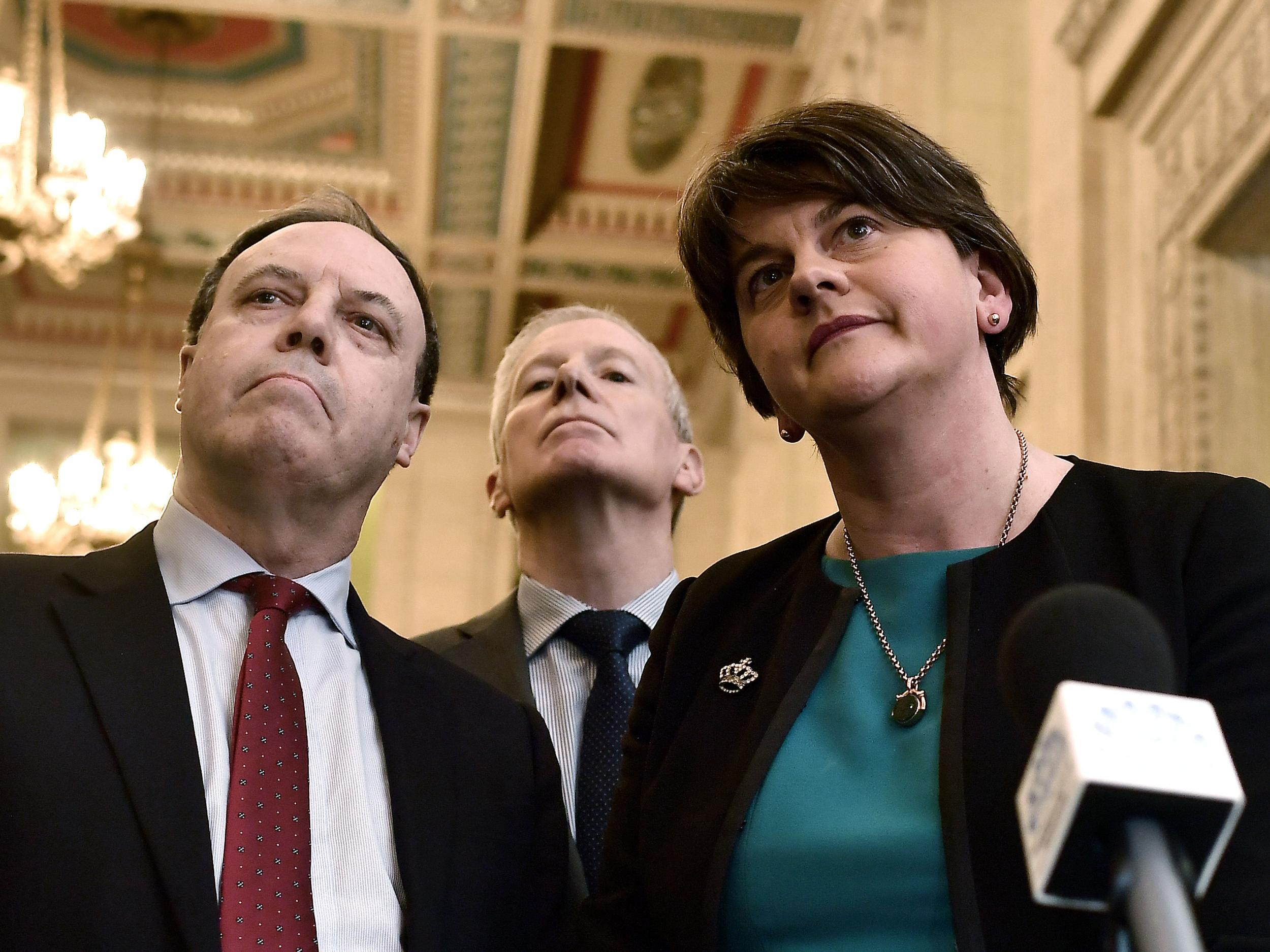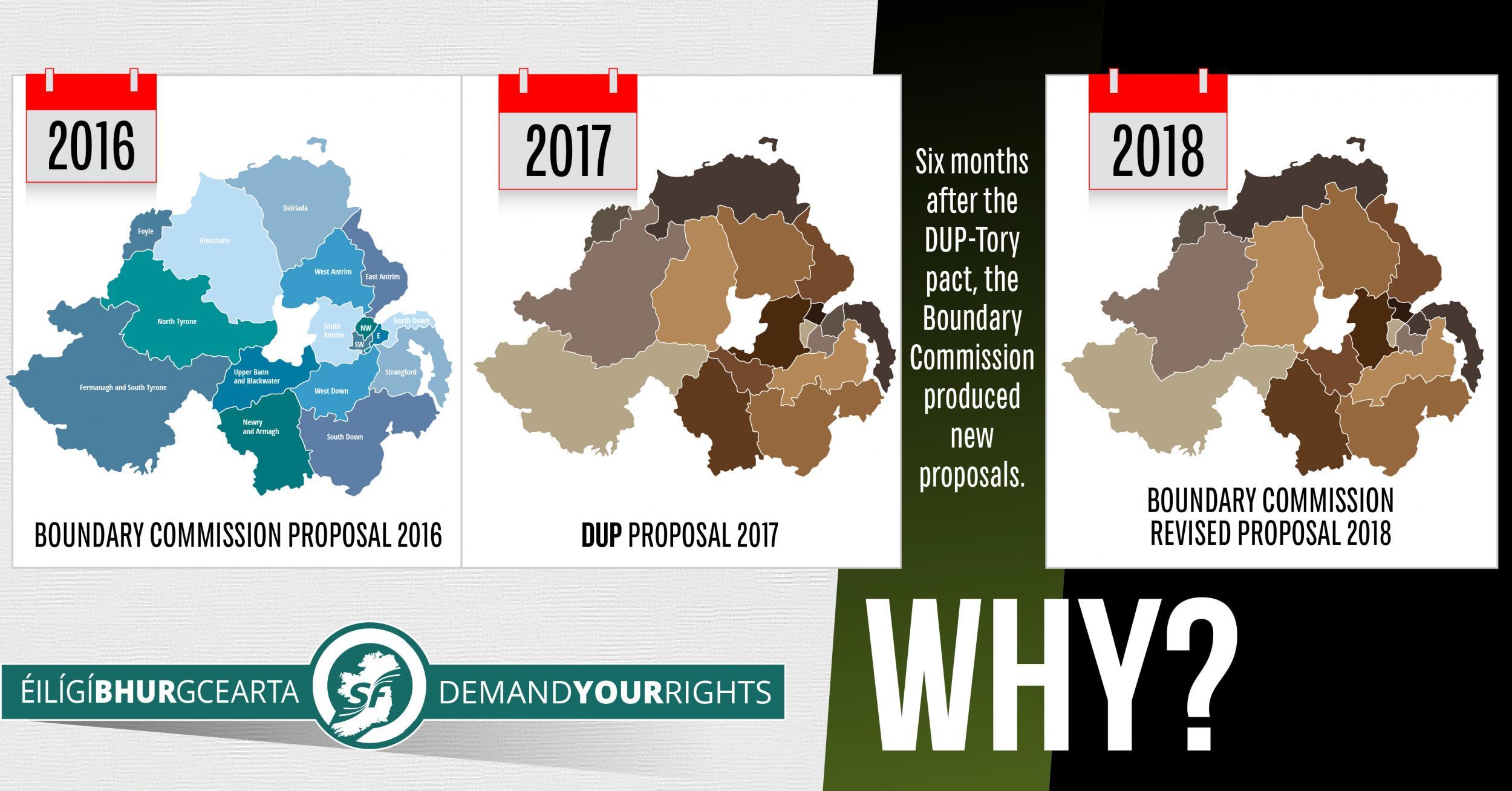Why are the DUP being handed so much power in the latest boundary change?
The DUP entered a self-serving pact to keep Theresa May’s Tory Government in power. And just six months after that deal was signed, the Boundary Commission produced new proposals

Your support helps us to tell the story
From reproductive rights to climate change to Big Tech, The Independent is on the ground when the story is developing. Whether it's investigating the financials of Elon Musk's pro-Trump PAC or producing our latest documentary, 'The A Word', which shines a light on the American women fighting for reproductive rights, we know how important it is to parse out the facts from the messaging.
At such a critical moment in US history, we need reporters on the ground. Your donation allows us to keep sending journalists to speak to both sides of the story.
The Independent is trusted by Americans across the entire political spectrum. And unlike many other quality news outlets, we choose not to lock Americans out of our reporting and analysis with paywalls. We believe quality journalism should be available to everyone, paid for by those who can afford it.
Your support makes all the difference.Fifty years on from “one man-one vote” the nationalist community again faces an appalling denial of equal representation under proposals to redraw electoral boundaries in the North of Ireland.
The new boundaries, if implemented by the Tory Government, will disfigure and distort the electoral map here. Representation will be denied to thousands of nationalist voters and leave several constituencies without any nationalist representative whatsoever at an Assembly level.
The proposals have emanated from a boundary commission review that was established in 2016 with a remit to reduce the number of constituencies from 18 to 17 and to distribute the electorate in a fair and equitable way across the new constituencies.
The commission initially produced a plan that by and large achieved these key objectives, but they were heavily criticised by the DUP because that party stood to lose out electorally.
The DUP’s Ian Paisley Jr announced that his party “[would] see about that” and submitted their own version of how they would like the new boundary map to look. This DUP proposal sought to maximise the number of DUP elected representatives and minimise the number of nationalists by manipulating electoral boundaries.
In the subsequent period, the DUP entered a self-serving pact to keep Theresa May’s Government in power. And just six months after that deal was signed, the Boundary Commission produced new proposals.
Sinn Féin warned at the time that the DUP would attempt to insert this issue into their negotiations with the Tories so it came as little surprise to us that the new proposals were virtually indistinguishable from the DUP’s.
The Boundary Commission deny there has been a deliberate gerrymander at the behest of the DUP and stress their independence from political interference.
Nevertheless, they do admit to radically altering their plan, as well as applying the controversial rule seven. This rule is only available in the north of Ireland and gives the Commission scope to go beyond the usual electorate quotas in any given constituency. Despite ruling out the need to evoke it in their original proposals, the Boundary Commission changed this approach after the DUP argued for it to be implemented.
Indeed, the Commission’s revised report overturned every key decision that underpinned their original proposals, without offering any reasonable explanation as to why.
It is Sinn Féin’s firm view that these changes are unjustifiable and must be overturned.
Votes should be equal. Political representation should reflect the population in any given constituency. These proposals achieve neither of these aims and, instead, effectively deny representation to thousands of nationalist voters.
The use of rule seven, which many nationalists refer to as the “gerrymander rule”, has effectively allowed this to happen.

When the northern state was created, it was deliberately gerrymandered in order to try to guarantee a perpetual unionist majority.
The last Assembly election finally ended that democratic affront when unionism lost its majority status for the first time since 1921.
Demographic changes are also indicating a nationalist voting majority by 2022, coincidentally the same year when these boundary changes are due to take effect.
But rather than respond to these changing political and demographic trends by reaching an accommodation with their neighbours on this island, it seems the DUP would prefer to re-gerrymander constituencies in order to try to artificially hold onto as much unionist control as they can for as long as possible.
That is what their submission sought to achieve and the Boundary Commission have not been able to justify why their revised proposals effectively produce the same result.
But it is not too late to change this. The Commission is consulting on the revised proposals until 26 March and Sinn Féin is urging as many people as possible to respond. It is vital that those who share our concerns register their objections to a plan that will have such a disastrous and anti-democratic impact.
My party has also made a detailed submission setting out a number of proposals that represent a fair and equitable approach to boundary reform.
If, as the Commission stresses, they have not been unduly influenced by any malign intention from the DUP, then we expect our ideas to be reflected in their final revised proposals.
Francie Molloy is a Sinn Féin politician and MP for Mid Ulster
Join our commenting forum
Join thought-provoking conversations, follow other Independent readers and see their replies
Comments